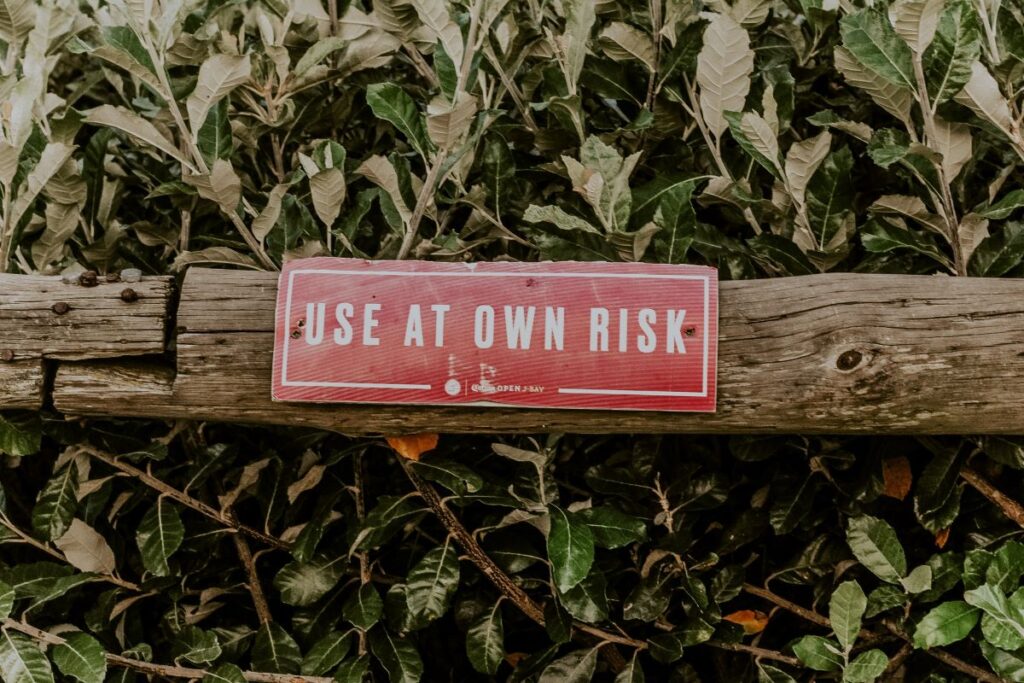
The advent of smartphones and social media in the late 2000s marked an epochal and irreversible change in how we seek information and interact with each other. While this transformation can be defined as “progress”, it also exposes us to significant risks, such as misinformation and privacy breaching.
Some social groups tend to be more exposed to such risks than others. For example, today, people affected by physical or mental health conditions can join social media peer support groups (PSGs), which often lack moderation by a trained peer support worker or volunteer. Although this might facilitate disclosure for some people, it can also expose them to increased levels of distress due to overwhelming expressions of concern and anxiety by others and low-quality information.
Although previous studies have reported the benefits attributable to social media peer support groups (Chung J. E., 2013), it’s of concern that only a limited number of studies have investigated the risks that participation in such groups may pose for people with psychological disorders (Tong Tan Y. et al, 2020). In particular, no research exists prior to the present work that focused on the risks and challenges that people who participate in social media peer support groups for Obsessive-Compulsive and Related Disorders (OCRDs) may encounter. Therefore, Tong Tan et al (2020) have attempted to fill this gap in the literature by exploring the predictors of negative experiences that users of online, non-moderated PSGs for OCRDs might face.

Social media peer support groups can expose users to risks such as increased levels of distress and poor quality information
Methods
Participants
Inclusion criteria
Groups must be:
- Active, with minimum five posts made in the past day;
- Non-facilitated by a professional or trained volunteer;
- Participants aged 18+ , with a self-reported experience or clinical diagnosis of one or more obsessive compulsive related disorders (OCRDs) (i.e. obsessive-compulsive disorder (OCD), body dysmorphic disorder (BDD), hair pulling disorder (trichotillomania), excoriation (skin picking) disorder, hoarding disorder).
Exclusion criteria
Groups that:
- Prohibit researchers from advertising the study invitation;
- Serve commercial interests.
Measures
Thirteen quantitative questionnaires and three qualitative open-ended questions were collected within the same survey.
6/13 questionnaires were designed or adapted by the authors for the purpose of the study, but didn’t undergo psychometric validation. They included:
- Demographics and mental health questionnaire (Tong Tan Y. et al, 2020)
- Health Online Support Questionnaire (Mattsson , et al, 2015)
- Online Peer Support Group Use Scale (Tong Tan Y. et al, 2020)
- Online Peer Support Group Experiences Questionnaire (Tong Tan Y. et al, 2020)
- Quality of Online Relationships Inventory (Pierce R. et al, 1997)
- Treatment Barriers Questionnaire (TBQ) (Marques et al, 2010)
The quantitative and qualitative responses were analysed individually and then integrated such that qualitative results provided a more comprehensive explanation of quantitative results.
Results
Based on the inclusion and exclusion criteria, 90 participants were recruited from thirteen online peer-support groups, ten on Facebook and three on Reddit. 93.3% of subjects were female (average age 27). Data from 54 participants was analysed, as the remaining 36 had never participated in online peer-support groups for OCRDs.
Descriptive analyses
- On average, participants’ time on social media was:
- 5.9% “active use”, i.e. posting or sharing material and answering others’ posts
- 86.9% “passive use”, i.e. browsing, reading, viewing, liking posts
- The main reasons given for participating in social media peer support groups (PSGs) were to read about:
- Peers’ experience of an intervention
- Peers’ experience of the condition
- Information to improve their condition
- Based on suggestions received on social media PSGs for OCRDs, participants changed their vitamin or supplement intake (27.8%), their medication regimen (9.3%), and/or their diet (11.1%). Only half consulted a health professional before making these changes.
Quantitative analyses
- The higher the offline treatment barriers, the higher the number of negative experiences on social media PSGs for OCRDs;
- Lower offline interpersonal support and higher passive use of social media PSGs was associated with a higher number of negative experiences in such.
Indeed, participants’ Negative Experience on social media PSGs for OCRDs was explained by offline treatment barriers, offline interpersonal support and passive use of social media PSGs for OCRDs.
Qualitative analyses
Two main themes were identified: external and internal factors.
External factors
- Confronting content shared by some users sometimes led to negative emotions and triggered symptoms in others;
- Misinformation was sometimes posted; generating confusion for some participants.
Internal factors
- Preoccupation with symptoms sometimes increased after spending time on social media PSGs;
- Social comparison sometimes led users to think their condition wasn’t severe enough for them to seek treatment;
- Hopelessness about recovery prospects sometimes resulted in mismatching definitions of recovery between users, leading some people to feel discouraged and hopeless about their future.

Participants’ negative experiences on social media peer support groups for obsessive compulsive related disorders were mainly explained by offline treatment barriers and offline interpersonal support.
Conclusions
Upon completion of the present study, the authors stated that:
using social media PSGs for OCRDs without adequate support structures in place offline, such as a strong social support network and professional mental healthcare, may place users at greater risk of a range of negative experiences.
Confronting content, preoccupation with symptoms, misinformation, social comparison, and feelings of hopelessness were recognised as fuelling factors of adverse experiences in such groups.

Social media peer support groups for obsessive compulsive related disorders (without adequate offline support) may place users at greater risk of negative experiences.
Strengths and limitations
Strengths
- The present study serves a relevant and clear aim, and is the first one highlighting potential risks and challenges for people with OCRDs using non-moderated online PSGs
- In terms of methodology, adopting a parallel mixed-methods approach allows a comprehensive analysis of results, which further strengthens the paper
- Exploring the relationship between negative experiences and anxiety, depression and internalised stigma levels was a sensible way to account for confounders, that is understanding to which extent such factors contributed to negative experiences in online PSGs.
Limitations
- Analyses were conducted on data from 54 participants that, given the number of today’s social media PSGs users, might be a too-small sample to draw firm conclusions
- 93.3% of participants were female, which makes findings unable to represent the male population. The body dysmorphic disorder diagnostic group might also be under-represented as only one PSG for people with this disorder was included
- The lack of psychometric validation of novel and adapted measures significantly impacts the quality of the study’s methodology
- Regarding thematic analysis, some questions may be perceived as leading as they assume every participant has both benefitted and/or had negative experiences using online PSGs
- Negative answers were explored in more depth because of the research aim (Tong Tan Y. et al, 2020), although only 19/40 answers reflected something negative. Therefore conclusions should be interpreted with caution.

The mixed-methods approach adopted by the authors allows an extensive analysis of results. However, given the non-generalisability of the findings, conclusions should be interpreted with caution.
Implications for practice
As a person with lived experience of Obsessive-Compulsive Disorder (OCD), I believe professionals in the mental health field, especially those working with individuals experiencing OCRDs, should routinely ask their clients whether they use social media PSGs for their condition. If yes, clinicians should further investigate how this impacts the individual’s choices and perception of their disorder.
My personal experience of using social media PSGs for OCRDs has been relatively neutral. I feel I didn’t benefit from them, nor have I had any terrible experiences. However, I sometimes felt overwhelmed by the anxiety and hopelessness expressed by some members, so I left such groups. Surprisingly, I’ve also noticed that being part of a Facebook PSG for OCRDs didn’t make me feel that sense of community I hoped for. Still, I recognise this might feel different for people who, unlike me, don’t have access to offline social support.
As I regard peer-support as crucial in mental health recovery, I’m not going to demonise social media PSGs. Still, I think the lack of moderation by a professional or trained volunteer poses several challenges. I also believe it’s unhealthy for people in their symptoms’ acute phase to get entangled with other members’ symptomatology, which can happen in such non-moderated groups. So, I agree with the authors that information about the risks and limitations of seeking peer support via these means should be highlighted. To conclude, I’d encourage key professionals, organisations, and governments to acknowledge the issue and co-operate with social media platforms’ policy-makers to update their systems and content moderation guidelines.

Social media peer support groups aren’t to be demonised; however, mental health professionals and social-media platforms’ policy-makers should be aware of the risks arising from the lack of professional moderation in such groups.
Statement of interests
None known.
Links
Primary paper
Yi Tong Tan , Imogen C. Rehm , Judith Stevenson , Alexander De Foe (2020). Social Media Peer Support Groups for Obsessive-Compulsive and Related Disorders: Under- standing the Predictors of Negative Experiences, Journal of Affective Disorders, doi: https://doi.org/10.1016/j.jad.2020.11.094
Other references
Chung, J. E. (2014). Social networking in online support groups for health: how online social networking benefits patients. Journal of health communication, 19(6), 639-659. https://doi.org/10.1080/10810730.2012.757396
Cohen, S., Mermelstein, R., Kamarck, T., & Hoberman, H. M. (1985). Measuring the functional components of social support. In I. G. Sarason & B. R. Sarason (Eds.), Social Support: Theory, Research and Applications (pp. 73-94). Springer Netherlands. Social Support: Theory, Research and Applications
Marques, L., LeBlanc, N. J., Weingarden, H. M., Timpano, K. R., Jenike, M., & Wilhelm, S. (2010). Barriers to treatment and service utilization in an internet sample of individuals with obsessive compulsive symptoms. Depression and Anxiety, 27(5), 470-475. doi: https://doi.org/10.1002/da.20694
Mattsson, S., Olsson, E. M. G., Alfonsson, S., Johansson, B., & Carlsson, M. (2015). Measuring use of health-related support on the Internet: Development of the Health Online Support Questionnaire (HOSQ). Journal of Medical Internet research, 17(11), e266. doi: doi:10.2196/jmir.4425
Pierce, G. R., Sarason, I. G., Sarason, B. R., Solky-Butzel J. A., & Nagle L. C. (1997). Assessing the quality of personal relationships. Journal of Social and Personal Relationships, 14(3), 339-356. doi: https://doi.org/10.1177/0265407597143004
Photo credits
- Photo by Christopher Ott on Unsplash
- Photo by Barefoot Communications on Unsplash
- Photo by Anthony Tran on Unsplash
- Photo by janilson furtado on Unsplash
- Photo by Alex on Unsplash
- Photo by chester wade on Unsplash
